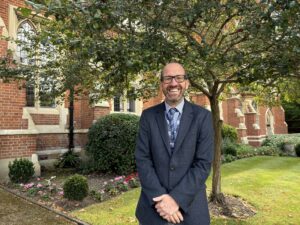Michael Fung, the executive director of the Center for Innovation of Future Education at Tecnológico de Monterrey in Mexico, said that there is room for improvement in the region’s educational achievement levels – which is something that higher education can contribute to at all levels.
“Latin America benefits… from this youthful population. I think education innovation has a huge role to play in elevating the quality and the reach of education to much wider segments of the population.
“We need to find ways to use education innovation to reach out to multiple segments of learners within the earlier years – not just the subsequent years, to really elevate the talent pool,” he said, speaking with The PIE News.
It was argued during the IFE Conference by the Center’s associate director José Escamilla that there is a misconception about the region that its countries are “all the same”.
Fung urged more collaboration between the countries using its key similarities.
“One of the real advantages of Latin America as a region is it’s a fairly common language. Now, of course, Brazil speaks Portuguese, but many Brazilians can understand Spanish as well.
“That common language is really helpful in terms of, extending educational innovation offerings across the region to a 600 million-strong population,” he explained.
He mentioned that Latin America is in direct contrast with the Asian continent, where hundreds of largely different languages are being spoken – so the situation becomes more difficult in which to innovate.
“Although each of these Latin American countries are very different, the common language, and certain common features in culture, can help to build that integration,” he urged.
“Learners here in Mexico can identify with the successes of learners in Colombia. At tech companies that are doing well in Peru, they can, you know, be thinking about markets in El Salvador, for example.
“I think that’s a big advantage that perhaps the Latin American countries have not utilised quite yet.”
“Learners here in Mexico can identify with the successes of learners in Colombia”
Fung also said that universities, colleges and other HEIs have a responsibility to both current and prospective students, as well as wider society.
“They occupy a privileged position in society because they build a reputation over time; they are trusted by the public, and they have a social mission.
“Unfortunately, most universities are very narrowly focused on a group of students that they serve. Given the need for lifelong learning opportunities for much wider segments of a population, I would argue that universities should play a much bigger role in addressing some of those needs.”




